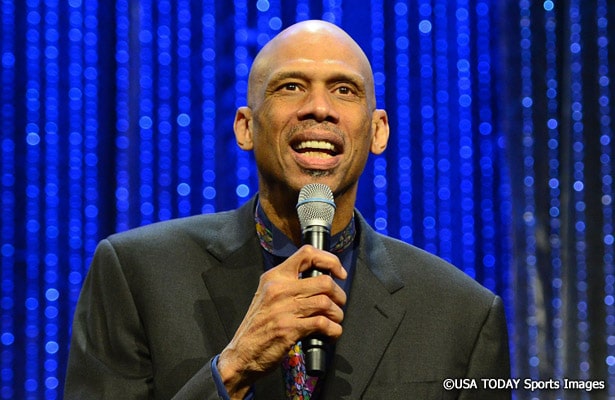Kareem Abdul-Jabbar never got his shot at being an NBA head coach, and he thinks he knows why.
The basketball legend believes his reputation as being difficult to work with kept teams from giving him a chance, despite his incredible playing career.
“When I first tried to do some coaching, I was approaching 50,” Abdul-Jabbar told Harvard Business Review in 2012. “So, I was advanced in years to be a rookie. And then the whole lack of being social, my reputation as a difficult person, might have scared people off.”
This is coming from a man who won the MVP award six times during his playing days.
Let that sink in.
One of the most dominant players ever couldn’t land a head coaching job in the league where he made history.
Abdul-Jabbar did get his foot in the door briefly. The Los Angeles Clippers hired him as an assistant coach in 1999, but he only lasted one season.
Later, the Lakers brought him in to mentor their young center Andrew Bynum. It was a role Kareem took pride in.
“He was 17 years old when I started working with him and had not played a lot of basketball. He made great strides because he had a great attitude, and I think I was able to make him a very valuable member of our team,” he said.
But that’s as far as NBA teams were willing to go with him.
The thing is, Kareem actually proved he could coach when given the chance. In 2002, he took over the Oklahoma Storm of the United States Basketball League.
What happened? He won the championship in his very first season.
It was an impressive achievement that many consider one of his best post-playing accomplishments.
Still, NBA front offices weren’t convinced.
“I had a tough transition, because people didn’t think I could deal with people back and forth and the give and take,” he admitted.
Now at 78, Abdul-Jabbar stays active and healthy, but he’s accepted that his coaching dreams in the NBA probably won’t come true.
His story shows something pretty surprising about professional sports: being an all-time great player doesn’t guarantee you’ll get coaching opportunities. Sometimes, how people perceive your personality matters more than what you’ve accomplished on the court.

